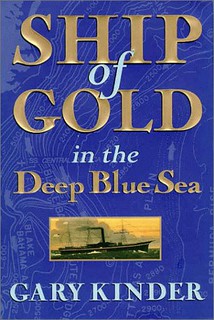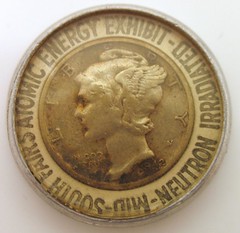
PREV ARTICLE
NEXT ARTICLE
FULL ISSUE
PREV FULL ISSUE
NOTES FROM E-SYLUM READERS: AUGUST 4, 2019Remembering Simon Bendall
Just a few minutes later, I ran into Simon Bendall (I’d had some interactions with him before). So I showed him my new acquisition. “It’s a silver coin,” he said immediately. “Constantine IX.” Just like that. I was blown away by such depth of knowledge and memory. That attribution was far from obvious, but of course he was right. The green patina came off revealing a silver coin, and fairly rare, of Constantine IX. Only days ago I got a group of Michael VIII scyphates, a couple of which aren’t in his book. Running some pictures past Simon was the obvious thing to do, but now it’s moot. What a loss to numismatics. To read the earlier E-Sylum article, see:
"The Coins Tone Themselves"
Recent "crazy" prices for otherwise common high-grade U.S. coins with colorful toning remind me of something I learned long ago. In the early 1960s I was collecting modern world coins and visited the downtown Chicago office of dealer Frank Lapa from time to time. (Lapa later went bad and died in prison.) One day he had a selection of very recent (1960-61 or so) uncirculated minor world coins with what he called "crazy" toning for sale; it was obvious that these coins had not toned naturally, but they were certainly colorful. (They weren't particularly expensive, but I didn't buy any.) Frank told me that one of his customers was toning them. This man would not reveal his process, but said "the coins tone themselves." Clearly it did not take very long, and worked on copper-nickel and copper coins too. In bringing this up now, I am not suggesting that any of the coins sold recently at huge prices were artificially toned, or that the grading services are unable to detect fake toning. However, the greatest demand originally was for Morgan dollars, then classic commemorative half dollars, and now we are seeing Washington quarters and Mercury dimes. So we need to be vigilant, because the process for adding "crazy" toning to smaller coins has been around for over half a century.
Thanks. An interesting addition to our earlier discussion on coin "doctoring" and conservation. Of course, it's true in a way that "The Coins Tone Themselves". People may provide the conditions that encourage or speed the toning process, but it's still a natural process. No one is dipping them in paint. -Editor To read earlier E-Sylum articles, see:
Ship of Gold in the Deep Blue Sea
Thanks. I read that book early on and it's indeed a great one. Copies can be found cheaply online. -Editor To read earlier E-Sylum articles, see:
More on Irradiated Dimes
To read the earlier E-Sylum articles, see:
More on Strange Good Luck Symbols
I have referred Craig Murray's website to a few of the researchers and will now refer their work to Craig. So far, there does not appear to be a one-to-one overlap in symbols, but both appear at a time when fascination with Mayan, Aztec, Ogam, Egyptian glyphs became popular in American literature. While they may be unrelated, I suspect the development of the quasi-symbolic systems has the same roots.
Interesting! I wasn't aware of that, but I'm not surprised. Makes sense. Thanks for making the connections. -Editor To read the earlier E-Sylum article, see:
Correction: Battle of Rorke's Drift
The original story has it wrong (misleading, at best): Rorke's Drift was in JANUARY, not July (22-23rd, 1879). So, while it is the 140th year since the battle (and the 55th since Stanley Baker's "Zulu"), the actual anniversary was six month's ago.
George Reynolds also caught this boo-boo. Thanks, guys. I never even thought to look that up. -Editor To read the earlier E-Sylum article, see:

Wayne Homren, Editor The Numismatic Bibliomania Society is a non-profit organization promoting numismatic literature. See our web site at coinbooks.org. To submit items for publication in The E-Sylum, write to the Editor at this address: whomren@gmail.com To subscribe go to: https://my.binhost.com/lists/listinfo/esylum All Rights Reserved. NBS Home Page Contact the NBS webmaster 
|



